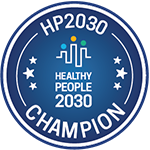
Contact our PIO directly to share health news.

770.339.4260
Your Future is Key, So Stay Drug Free
Red Ribbon Week is a time when people and communities unite to take a stand against drugs and promote a drug-free lifestyle. The campaign started when drug traffickers in Mexico City murdered DEA agent Kiki Camerena in 1985. The Red Ribbons are used as a symbol of intolerance towards the use of drugs.
Did you know? Children of parents who talk to their teens regularly about drugs are 42% less likely to use drugs than those who don’t; yet, only a quarter of teens report having these conversations. Red Ribbon Week® (October 23-31), the oldest and largest drug prevention campaign in the nation, is your opportunity to get the ongoing conversation started.
This year’s theme is Your Future Is Key, So Stay Drug Free.® Visit www.redribbon.org to learn more about Red Ribbon Week® and get tips for talking to your kids about drugs. The life you save may be that of your own child or a dear friend.
Talking to Your Kids
1.) Choose a good time & place
Look for blocks of time to talk. After dinner, before bed, before school or on the way to or from school and extracurricular activities can work well.
- Take a walk or go for a drive together. With less eye contact, your teen won’t feel like he’s under a microscope.
2.) Approach your talk with openness, active listening & “I” statements
Keep an open mind and remain curious but calm. This way, your child is more likely to be receptive to what you have to say.
Ask open-ended questions. For a more engaging conversation, you’ll want to get more than just a “yes” or “no” response from your child.
Use active listening. Listen without interrupting (no matter what), then sum up what you’ve heard to allow him or her to confirm. Try these phrases:
“It seems like you’re feeling…”
“I hear you say you’re feeling…”
“Am I right that you’re feeling…”
Use “I” statements. “I” statements let you express yourself without your teenager feeling judged, blamed or attacked.
“I feel like you can’t hear what I have to say when you’re so mad. Then I get frustrated. I need to talk about this later when we’re both able to listen.”
“Because I love you and I want to keep you safe, I worry about you going to the concert. I need to know that you will obey our rules about not drinking or using drugs.
3.) Understand your influence as a parent
Parents have a big influence on their kids life. Discuss the negative effects of drugs and alcohol. Clearly communicate that you do not want your teen using drugs. Talk about the short- and long-term effects drugs and alcohol can have to his or her mental and physical health, safety and ability to make good decisions. Explain to your child that experimenting with drugs or alcohol during this time is risky to their still-developing brain.
- Ask your child what might happen if he or she does use drugs or alcohol. This gets your teen to think about her future, what her boundaries are around substance use – and some possible negative consequences (she may be late to practice, do something stupid in front of her friends, have a hangover). It will also give you insight into what’s important to her.
- Take advantage of “teachable moments.” Use every day events in your life to point out things you’d like your child to know about. Point out alcohol and drug-related situations in celebrity headlines, or stories going on your own community that show the consequences of alcohol and drug use. If you and your child are at the park and see a group of kids drinking, use the moment to talk about the negative effects of alcohol. When watching TV together, ask if the shows and advertising make drug use look acceptable and routine? Or do they show its downside? How did that program make your child feel about drugs?
- If there is a history of addiction or alcoholism in your family, then your child has a much greater risk of developing a problem. Be aware of this elevated risk and discuss it with your child regularly, as you would with any disease.
4.) Offer empathy & support
Acknowledge that everyone struggles sometimes, but drugs and alcohol are not a useful or healthy way to cope with problems. Let your child know that he/she can trust you.Remind your child that you are there for support and guidance – and that it’s important to you that she/he is healthy, happy and makes safe choices.
5.) Keep in mind your teen’s brain is still developing
The human brain doesn’t fully develop until about age 25. This helps to explains a lot about the way your teen communicates. Forr example, because the prefrontal cortex isn’t mature, your child may have a terrible time interpreting facial expressions. (You may feel surprised, but he or she thinks you’re angry.) Add that to impulsivity (over-reactive amygdala) and limited emotional control (prefrontal cortex again), and you’ve got a recipe for major communication problems. Once you learn to recognize typical teen behavior, you can control your automatic reactions to it and communicate more clearly.
Identifying the behavior you see in your teen can help you manage our own impulses; we avoid giving our teens control. Start keeping a list of the things your teen does that make you feel frustrated, impatient, angry or threatened. (Include specific words, emotions, gestures and body language.) Writing things down will make it easier for you recognize the same scene later and say, “I’m not falling into this trap again.” Pay attention to yourself. What happens when your teen mouths off? Does your heart race? Do your cheeks burn? Does your neck get stiff? These are the warnings signs of a gut reaction. As soon as you feel the cues, take a deep breath (or three) or take a break to cool down. Before you do, though, set a time when you’ll both come back and continue talking.
Helpful Links
Contact our PIO directly to share health news.




